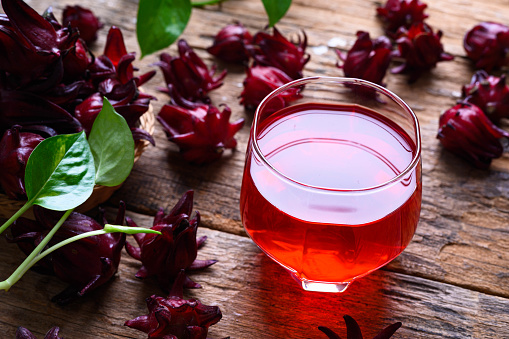Hibiscus Tea - Health Benefits

If you are looking for a drink that has a tangy and fruity flavor, you may want to consider hibiscus tea. This herb has become very popular over the last few years and is considered to have many health benefits. It's an antioxidant, and the plant is also said to reduce cholesterol.
You can buy hibiscus tea leaves in loose leaf form or teabags. You can also buy hibiscus extract, which is a concentrated liquid form of the herb. These supplements are sold at health food stores and herbal supplement retailers. They can affect blood sugar levels, so make sure to check with your doctor before consuming them.
Hibiscus tea is a good source of vitamin C, a natural antioxidant that helps prevent various chronic diseases. Vitamin C is also said to boost the immune system. Additionally, hibiscus tea is full of anthocyanins, a natural phytochemical that gives the plant its beautiful red color. The anthocyanins in hibiscus tea are believed to have antibacterial effects. Other studies have found that hibiscus lowers blood pressure. But more studies are needed to determine the exact health benefits of hibiscus. You can buy hibiscus tea online here!
People who are prone to heart disease should be especially careful with their blood pressure and cholesterol. The plant has been used in traditional African medicine to treat both. In fact, some people in Africa drink a natural hibiscus tea daily to help them deal with high blood pressure. Despite the fact that there is little known about hibiscus's role in heart health, the herb is an excellent beverage for those who want to improve their cardiovascular health.
Traditionally, hibiscus has been used to treat high blood pressure, heart disease, and sore throats. Some studies have shown that hibiscus can reduce cholesterol, though more research is necessary. However, the herb is not recommended for people with low blood pressure or those taking chloroquine.
Hibiscus tea is a great way to refresh a tired mind and body. Hibiscus flowers are sweet and tart, and can be blended with other ingredients such as honey or lemon or lime juice. Mint is another complementary flavour. Adding fresh berries, cinnamon, or cane sugar can add some additional flavor. To get the most out of your tea, use a quality loose-leaf tea.
Hibiscus tea is easy to prepare and can be prepared in two ways. First, you can use dried hibiscus buds, or calyces, to make a hot cup. Alternatively, you can make a cold brew by pouring cold water over dried hibiscus calyces. This allows for a smoother, tastier taste. Once the hot hibiscus tea has cooled down, you can strain it to remove any solids.
Although studies have shown that hibiscus tea can reduce blood pressure and improve cholesterol levels, more studies are necessary to verify the effectiveness of the herb on heart health. Also, more studies are needed to confirm the benefits of hibiscus for people with diabetes.
Since hibiscus isn't caffeine-free, you should avoid drinking it if you have a caffeine allergy or are otherwise sensitive to caffeine. However, hibiscus is considered to be safe for most adults. Learn more about teas at https://en.wikipedia.org/wiki/Category:Tea.
